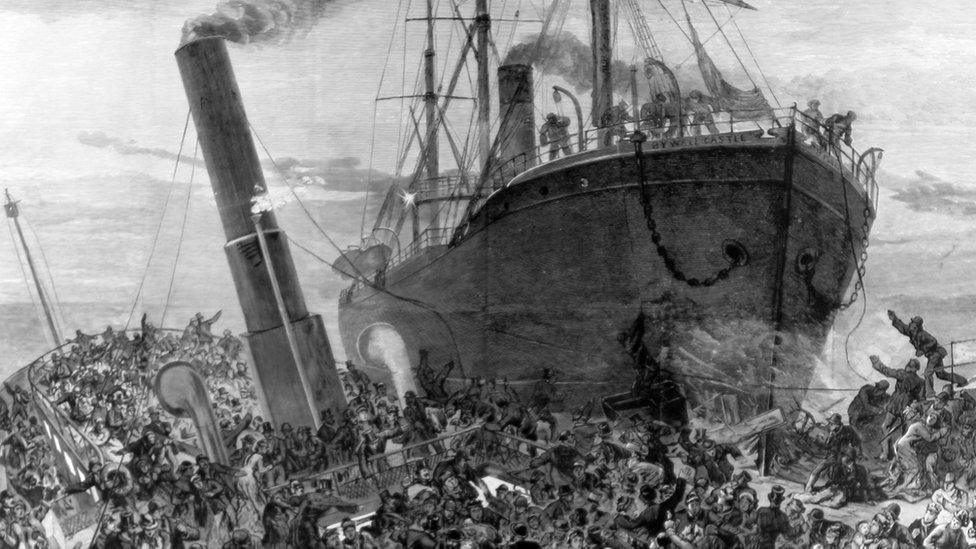Lakonia disaster: Centenarian reflects on cruise ship sinking 60 years on
- Published
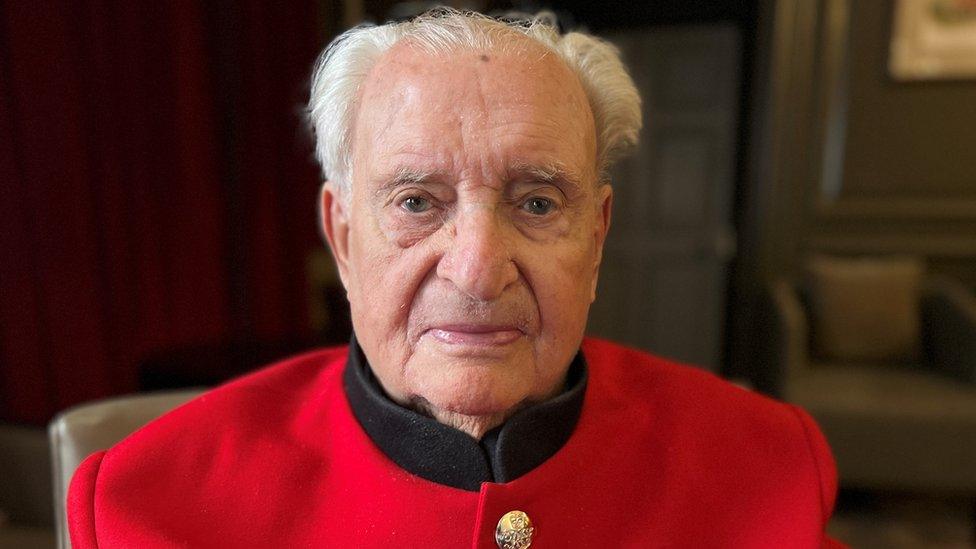
Chelsea Pensioner John Morris was aboard the Lakonia when the ship sunk
"I think somebody up there's looking after me," John Morris said.
It's the only way the 101 year old Chelsea Pensioner can explain how he survived one of the worst UK cruise ship disasters which happened 60 years ago this month.
Invited to go on a Christmas trip by his mother-in-law, John and his young family boarded the Greek-owned TSMS Lakonia ocean liner on 19 December 1963 along with over 600 other passengers.
Setting off from Southampton it was meant to be the trip of a lifetime but three days later disaster struck in the Atlantic, claiming the lives of 128 passengers and crew.
Recalling how that evening unfolded John said: "There was a fire alarm and a couple of hours later they gave the order to abandon ship. I got everyone on a lifeboat except my mother-in-law and I had to put her on another lifeboat."
Faulty electrics had started a fire in the hairdressing salon around 23:00 GMT and quickly spread to other areas which had made the blaze difficult to tackle.
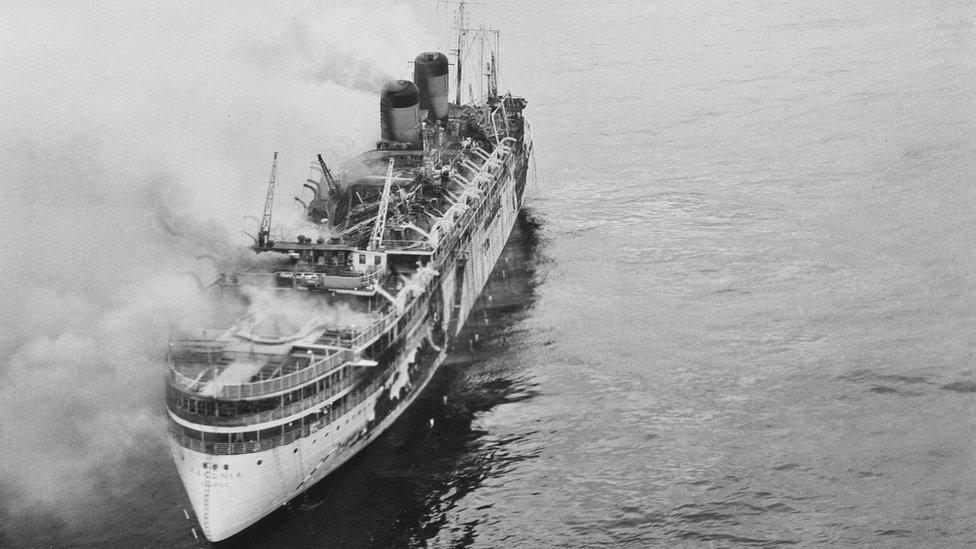
TSMS Lakonia sank in December 1963
With many passengers either asleep in their cabin or like John still in the ballroom enjoying the evening, it wasn't until 01:00 that the enormity of the problem became apparent during a chaotic evacuation of the ship.
"There was no more lifeboats so I stayed on deck. They then opened the bar, free drinks for everybody who stayed on board and we were just wondering what to do," said John.
"The boilers started exploding, by then I was a little bit Ubriaco (drunk), I didn't have a lifejacket anyway and I was in my tuxedo and everything, they had the gang plank thrown overboard and I just walked into the sea and swam away."
Managing to grab a piece of wooden deck cargo the ex-SAS World War Two veteran was drifting in the water for six hours desperately trying to swim away from the ship which could have sunk at any time.
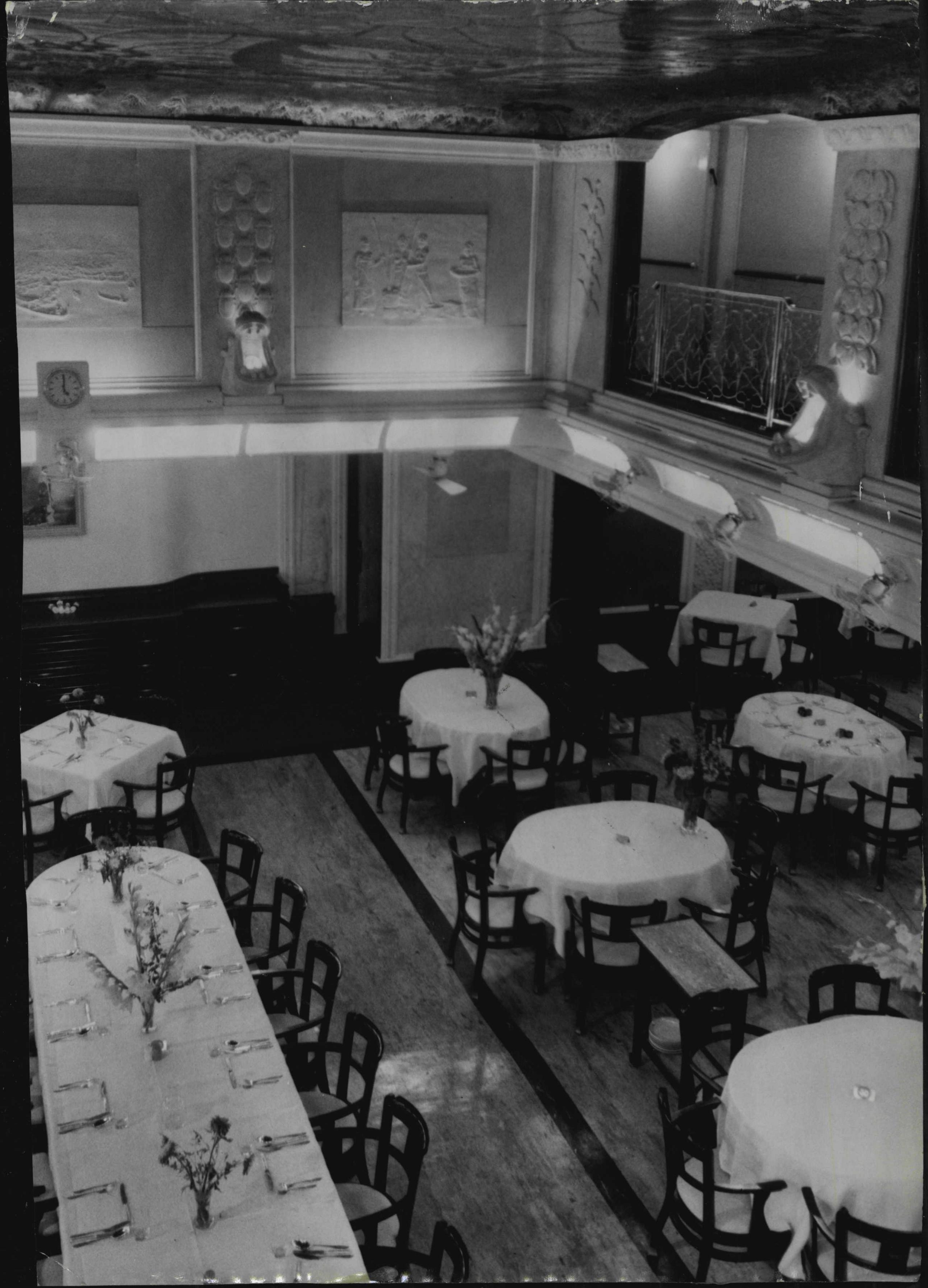
John was in the ship's dining room when the order to evacuate was made
He said: "I managed to pull someone else on board who was sinking, he had no life jacket either and we had to wait for the dawn to come before we got picked up and I was very very weak by the time they tried to pull me up and when I got on board there was dozens of bodies on the decks already with tarpaulins on."
'I thought she was safe'
John's pregnant wife and young son managed to survive but it wasn't until he got back to the UK that he found out his mother-in-law had died.
"The lifeboat carrying my mother-in-law, the davits [which hold the lifeboat onto the ship] were rusted and they snapped when they'd lowered the boat and tipped them all into the sea and my mother-in-law's body was never discovered," he said.
"Her husband blamed me said I should have rescued her and he wouldn't speak to me at all.
"I suppose it's my fault putting her on the wrong lifeboat but I thought she was safe."
The Greek Merchant Marine Ministry launched an investigation which lasted two years which concluded that the order to abandon ship was given too late with only half of the lifeboats launched and the evacuation poorly executed.
Several of the Lakonia's officers were charged with negligence, the captain and first officer were both charged with gross negligence.
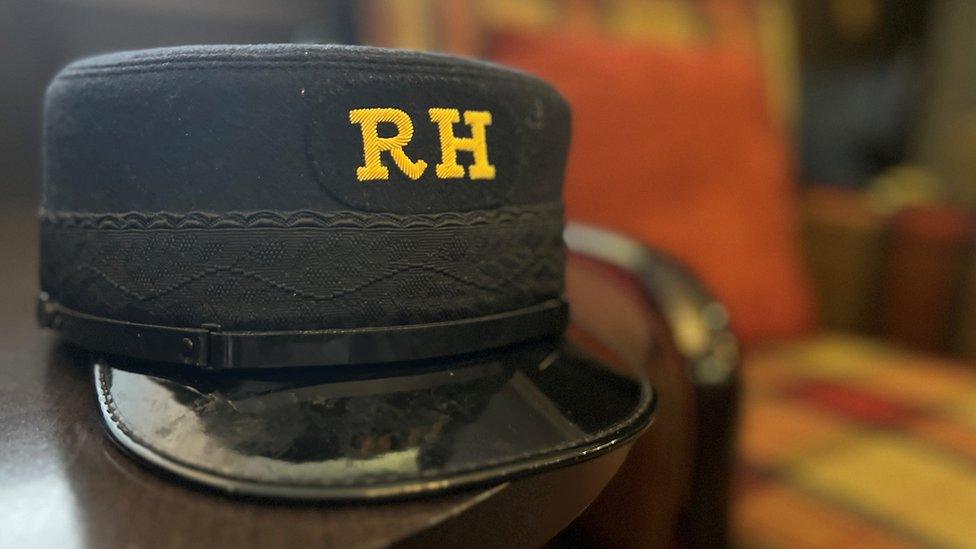
John Morris' Chelsea pensioner hat
"We saw the captain leave the ship, one of the first to leave with just one other crew which I thought was terrible," John said.
Sixty years on and John is now one of a handful of centenarians living at the Royal Hospital Chelsea and has only one way to explain how he survived.
"I felt I was being protected," said John looking back on his lucky escape from death.

Listen to the best of BBC Radio London on Sounds and follow BBC London on Facebook, external, X, external and Instagram, external. Send your story ideas to hellobbclondon@bbc.co.uk, external
Related topics
- Published3 September 2018
